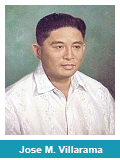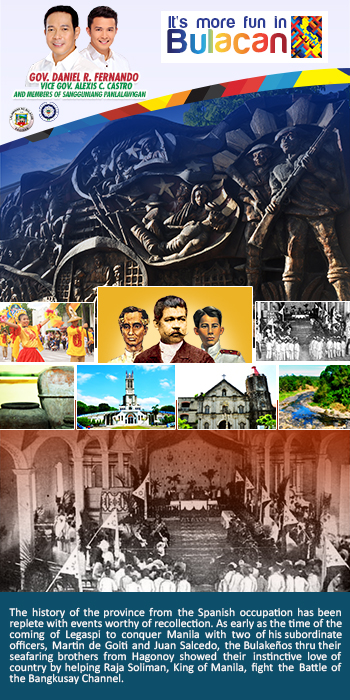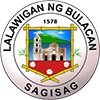General Info
Basic Information you need to know about Bulacan
Jose M. Villarama (1964-1967)
 Eldest of three children of Pedro Villarama and Luisa.
Eldest of three children of Pedro Villarama and Luisa.
Gov. Villarama was a graduate of medicine from UST in 1942. He Passed the Board Exam the same year. Already a successful businessman prior to his entering politics, Gov. Villarama operated two bus companies.
He was appointed vice-governor of Bulacan in 1962 by President Macapagal. As such he never spent his salary instead donated them to barrio councils, parent–teachers associations and other civic organizations.
He went to the farthest barangays to see the situation of the people. Among those he saw was the need for education for the growing children. Thus, we worked for the reduction of tuition fees in the provincial high schools of Bulacan. He appealed to president Magsaysay and was given Php 2.5 Million for schools and public facilities.
In 1963, Vice-gov Villarama resigned as vice-governor and ran against Gov. Martin. on January 1, 1964, he took his oath of office as the new Governor. His first task upon assumption in office was to ask his townmates who were doing business in other places to pay their taxes and in fact San Miguel Corporation paid Php 2 Million income tax in Bulacan. He increased his gravel fee collection from Php 17,000 to more than Php 300,000.
Revenues increased up to a point when employees receive up to Php 180 a month. Teachers pay were increased while matriculation fees were lowered. Supported by Pres. Macapagal, he was able to ask for the release of Php 14 Million which was used for cementing municipal streets, provincial roads and buildings. Trucks, loaders and other heavy equipment were purchased.
He even lobbied for the early construction of the North diversion Road.
He consulted experts from Japan to assist the farmers using his own money.
He had cabarets, night clubs and prostitution houses closed.
During his incumbency 566 public works projects worth Php 3.7 Million financed.
His major accomplishments were: brought back trust of the people to the government; minimized graft and corruption; increase in revenues; and cessation of construction of illegal fishponds and dikes.



